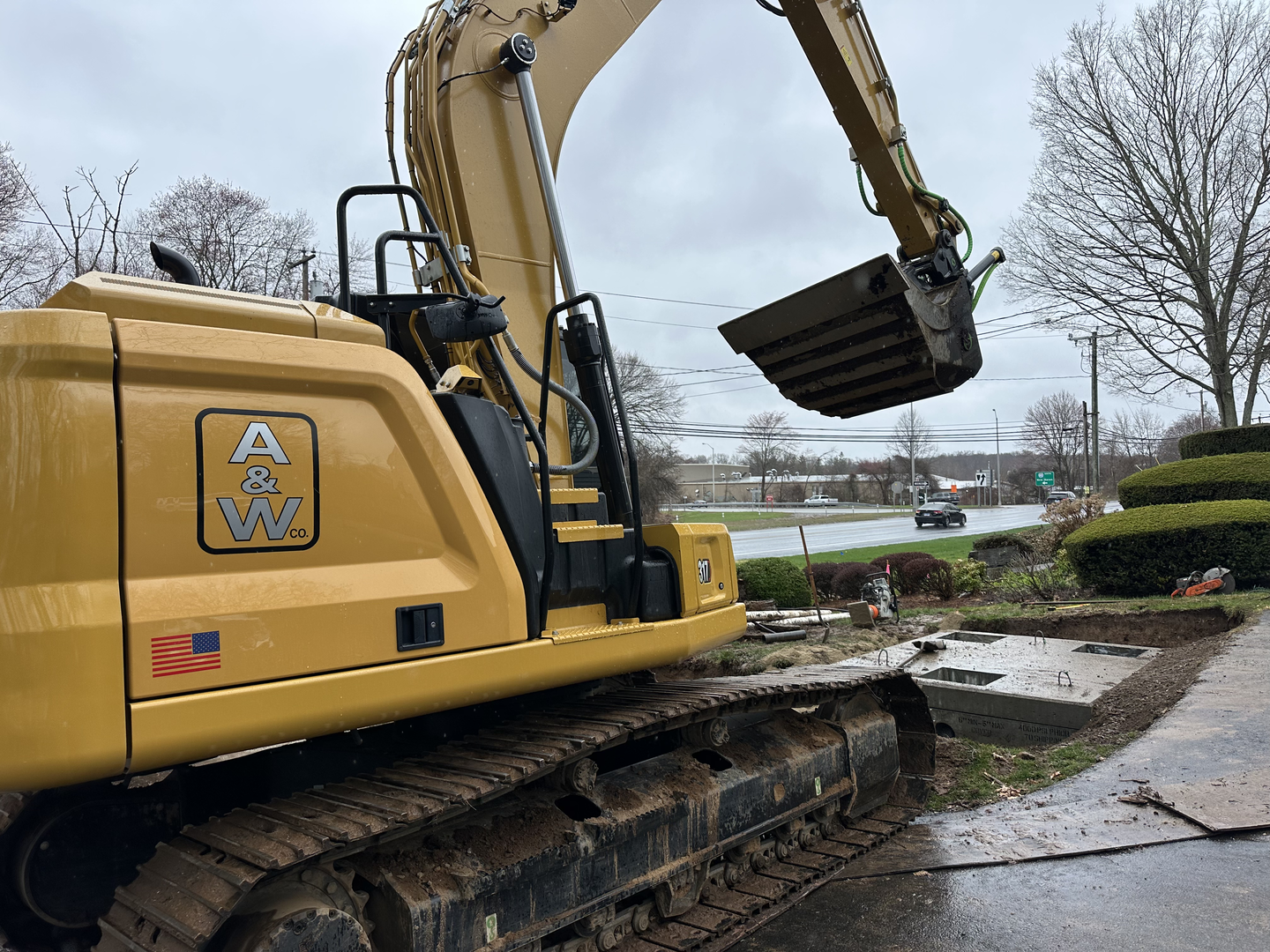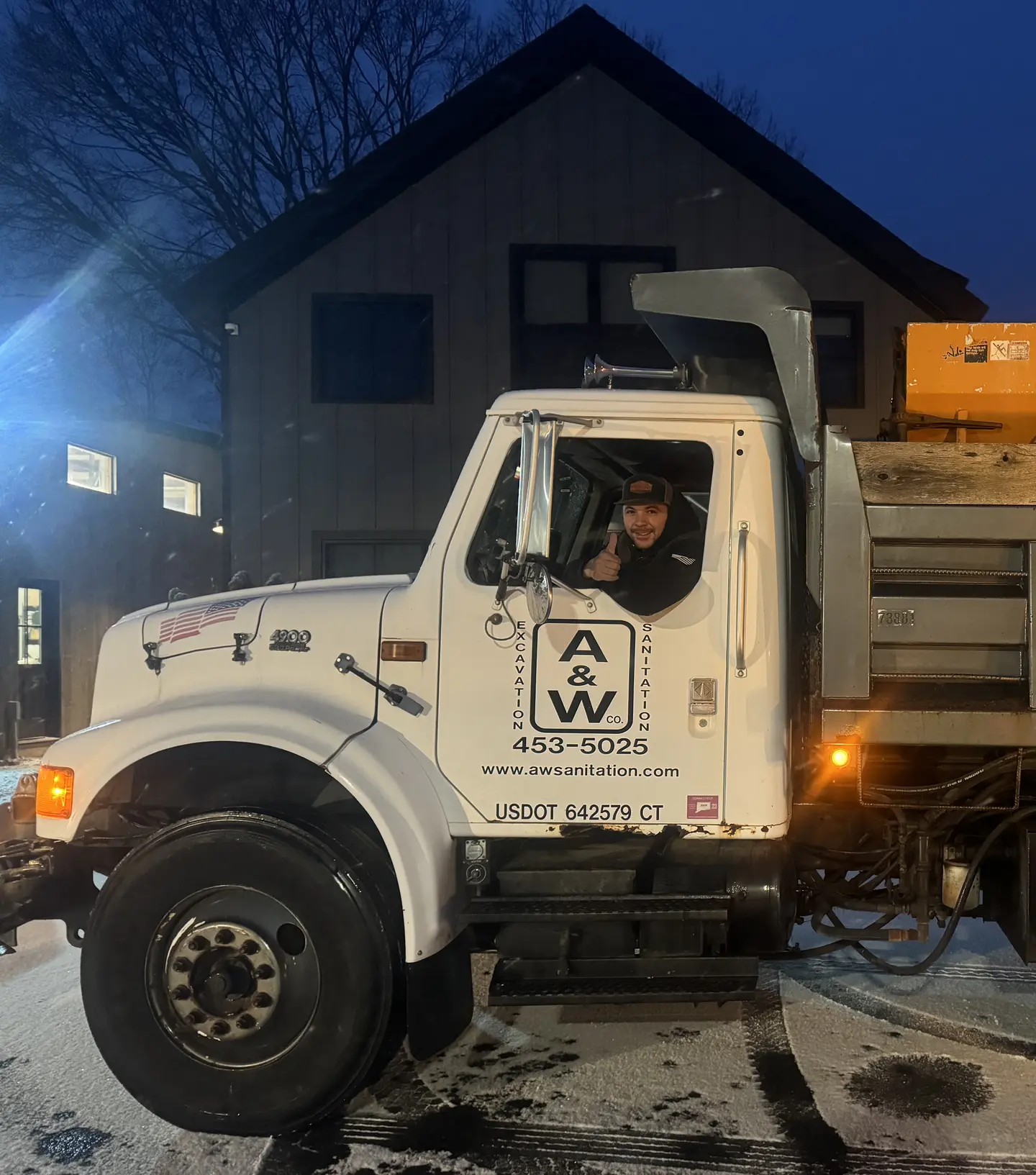Freezing temperatures in Connecticut bring more than just higher heating bills — they can also threaten your home's plumbing and septic system. Homeowners often discover the risks too late: frozen pipes, septic system blockages, and backups into the home. Fortunately, with proper preparation, you can avoid the most common winter hazards and keep your system functioning through even the coldest months.
In this article, we’ll walk through why these problems happen, how they affect your property, and what proactive steps you can take. At A&W Sanitation and Excavation, we help local homeowners stay ahead of the freeze with reliable septic services and seasonal maintenance support.
What Causes Winter Septic System Problems?
Cold snaps can cause both the water lines and septic components to freeze. This often happens when systems are underused, uninsulated, or have shallow pipe placements. Here's why these issues emerge in winter:
- Lack of insulation: Pipes exposed to outdoor air or unheated spaces like crawl spaces or garages are vulnerable.
- Low usage: Homes that sit empty or have low water use allow lines to freeze more easily.
- Surface water intrusion: Melting snow or ice can saturate the drain field, causing poor drainage or system overload.
- Blocked or frozen vent pipes: Frost and snow can clog roof vents, which are critical for air pressure regulation in your septic system.
When these elements combine, the result is often a septic backup — wastewater has nowhere to go and can reverse course into your sinks, tubs, or basement.
Signs You May Be at Risk
There are several warning signs that your system or pipes may be struggling with the cold:
- Gurgling noises in your plumbing
- Slow or backed-up drains
- Unpleasant odors around your home or yard
- No water coming from faucets
- Icy or wet patches above the septic tank or leach field
If you notice any of these, it’s best to contact a professional immediately before a minor issue turns into a major repair.
Winterizing Tips to Prevent Frozen Pipes & Backups
Our team at A&W Sanitation and Excavation recommends the following preventative steps to protect your septic system and pipes during the winter:
- Add insulation to exposed pipes in crawlspaces, basements, and attics.
- Run water regularly in each fixture to keep movement through the lines.
- Check your tank’s access cover to ensure it’s sealed and secure.
- Avoid compacting snow over your septic system — snow acts as insulation, so keep heavy equipment and vehicles off the area.
- Have your system pumped before winter if it’s due. A full tank is more likely to freeze.
- Inspect and clean filters and baffles to ensure no debris is contributing to slow flow.
Additional Pro Tips:
- Use heat tape on problem pipes (outdoor or crawlspace areas).
- Divert roof runoff away from the drain field with proper grading or downspout extensions.
- Mark the tank access lid and cleanout for easy winter location.
The Role of Septic Maintenance in Winter Prep
A properly maintained septic system is much less likely to experience cold-weather problems. If your system hasn't been pumped in 3 to 5 years or you’re noticing signs of trouble, now is the time to act.
A&W Sanitation and Excavation offers professional septic system maintenance, including inspections, pumping, and winter prep — all tailored for homes in Connecticut. We inspect critical components, clear build-up, and offer suggestions for weatherproofing based on your property’s layout and system age.
For more information on seasonal services, check out our routine septic maintenance page.
FAQ Section
Q1: Can a septic tank actually freeze in Connecticut winters?
Yes. While tanks are underground, shallow installations or those with low water usage are susceptible. A full or underused system is at greater risk.
Q2: How do I thaw frozen pipes safely?
Use heat tape or a space heater in safe proximity. Never use an open flame. If you're unsure, contact a professional — we can safely locate and thaw problem areas.
Q3: Should I still pump my tank in winter if needed?
Yes, but it’s best done before deep freezes arrive. Pumping in winter is possible but may require snow clearing or additional labor if the tank access is buried.
Q4: What if my drain field is saturated from melting snow or ice?
Avoid heavy water use until the field can absorb runoff. If backups begin, call us right away to assess whether there’s ice blockage or field failure.
Q5: Are vacation homes at higher risk for frozen systems?
Absolutely. Low usage allows water in the lines to sit and freeze. If your vacation property is unoccupied, winterize the plumbing or schedule a winter inspection.
If you’re concerned about your system heading into winter or want peace of mind through the season, contact A&W Sanitation and Excavation for a professional evaluation. We're proud to serve homeowners across the shoreline with prompt, knowledgeable service — before the cold creates costly problems.


.webp)

